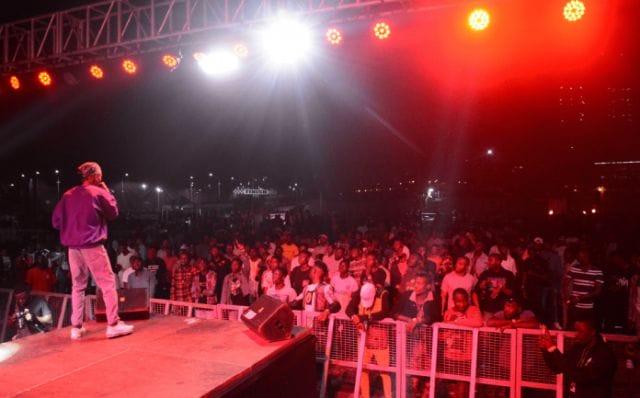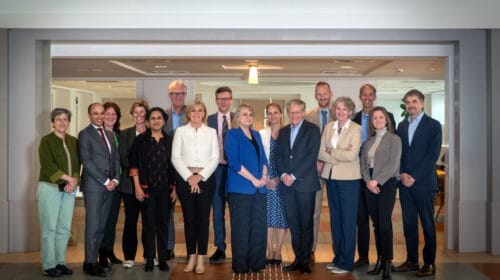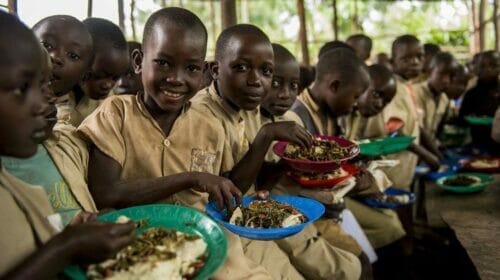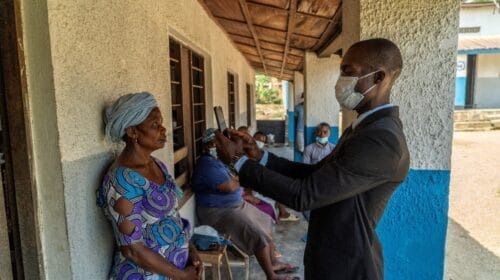How Music Has Influenced Behaviour During COVID-19 in Liberia – Liberian Daily Observer
By Nyema Richards, Programs and Learning Director AL Liberia, and Sanjeeta Pant, Programs and Learning Manager, AL Global
When Rap2Rep (now Voice2Rep or “Voice to Represent”) started in Liberia in 2015, it was a relatively small campaign to encourage creative activism among young people using Hip-Co- a popular Liberian genre often referred to as the ‘political music’. The campaign has since expanded to Nigeria and Zimbabwe, and, most recently, has also gained international attention. The campaign in Liberia was named by the UN as one of the finalists for the SDG Action Awards for “harnessing conscious music as a tool for social change through the platform of youth participation.” Voice2Rep was specifically recognized for informing people about the risks of coronavirus and debunking myths around it.
When the pandemic began, Liberia was already struggling with a number of interrelated challenges- scarce resources, poor governance and a fragile healthcare system with limited medical supplies, to name just a few. Simultaneously, a crisis of misinformation- or what the WHO calls an ‘infodemic’– was also brewing in communities and spreading quickly. Ebola had already proven why honest and open communication was needed to contain a public health crisis, and the Government of Liberia was using its traditional modes of informing the public through press releases, which were disseminated via the radio, local dailies and Government website. But a health crisis like Ebola or the COVID-19 pandemic requires actions on all fronts, using both traditional and new forms of media, and that include everyone- government, media, civil society, artists- to spread public health messages, especially in communities that are hard to reach and where trust in government is weak.
Young people find music to be a powerful tool to initiate change in their societies. Communities in return often trust alternative voices that are outside formal channels, like those used by the government- which is a result of widespread corruption and lack of accountability. In 2020, with support from the US Embassy, the Lab started a Coronavirus Voice2Rep music competition inviting young artists to come up with clear, relatable and catchy messaging on COVID-19. Hip-Co Accountability Ambassador, Henry Amaze Toe, and 13 other national artists produced three songs- Coronavirus is Real, We Got the Hope, and Why– which were played on local radio stations and shared on social media platforms. Additionally, they were also shared through on memory sticks with motorbike riders and taxi drivers to play for their passengers. The campaign used socially conscious music and nationally acclaimed Hip-Co artists to raise awareness and connect with the people.
Bridging the information gap meant creating partnerships with local stakeholders and authorities, because during a crisis, collaboration is key for success. This campaign brought together a cross-section of artists, journalists, government officials, and the Lab’s team of volunteers engaging in the counties, who worked to collect data about issues affecting communities and to debunk rumors and misinformation. Each partner supported the campaign in different ways from outreach to connecting team members with trusted sources of information to producing and disseminating the songs.
Local radio stations can play an important role in successfully reaching marginalized and rural communities and helping to overcome the digital divide- community radio stations have been a huge part of this process because they can directly reach residents where social media or other high tech communication tools are inaccessible. In Liberia, only 8% of the population have access to the internet; but everyone listens to the radio. We worked with 30 community radio stations across the 15 counties to share content with rural communities in particular. The songs produced were in local Liberian pidgin English (Colokwa) and, with the number of community radio stations involved, allowed the messages to reach about a quarter of Liberia’s population.
Working with a cross-country judging panel also helped generate international interest- in addition to outreach through social media and community radio stations, the campaign was supported by expert judges, Oscar Williams, Aisha Fukushima and Didho Williams (aka, Beatmaster Xclusive), a Liberian producer and sound engineer at the Hip-co Accountability Network and Studio at iCampus. The judges were heavily engaged in spreading the campaign’s messages and engaging a global audience. They were excited about being part of an initiative that showed how collaborative creativity can lead to positive impact during a crisis and showcasing how these local approaches can be adopted globally. Aisha Fukishima described her experience with the campaign in a brief video message– in which she highlights the power of music to inspire people to learn and take positive action.
Now, after the SDG Action Awards, we hope to grow the Voice2Rep campaign in Liberia even further, build other themes into the competition, and further diversify the musicians who participate to amplify the voices of more marginalized groups. There are some incredibly talented- and values-driven- musicians in Liberia- as you will have heard if you clicked on the links to the songs above. It is these influencers that can help us change behaviors and shift norms in ways that will ultimately help to create the Liberia we all want to live in.





